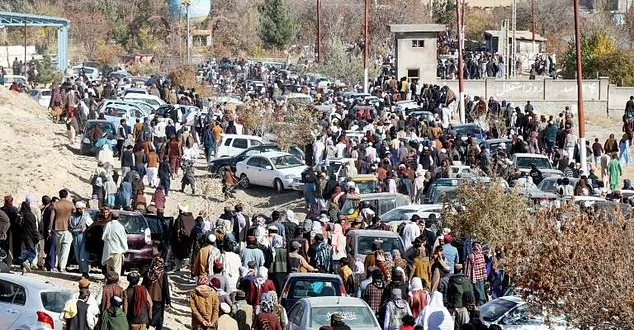KABUL – In a rare display of Taliban justice, authorities executed a convicted murderer on Wednesday in Gardez, the capital of Afghanistan’s eastern Paktia province. Thousands gathered at a sports stadium to witness the execution, where a relative of the victim fired three bullets into the condemned man’s chest, marking the sixth public execution since the Taliban’s return to power in 2021.
The execution followed a call by the provincial governor’s office on social media, inviting residents to “attend this event.” The condemned, identified as Mohammad Ayaz Asad, was sentenced under Afghanistan’s supreme court ruling, which was personally approved by Taliban supreme leader Hibatullah Akhundzada. Officials confirmed that Asad had been detained before the Taliban took power for the murder of Habibullah Saif-ul-Qatal. His case, reviewed by three military courts, granted the victim’s family the choice to pardon the execution—a choice they declined.
Several senior officials, including Taliban Interior Minister Sirajuddin Haqqani, attended the event. Witnesses voiced approval of the execution, citing the principle of “qisas” or “eye for an eye” justice, which the Taliban reintroduced in 2022. This form of punishment allows the death penalty as retribution for murder and other severe crimes.
Public executions were frequent during the Taliban’s initial rule (1996–2001), yet only a handful have occurred since their 2021 resurgence. However, corporal punishment remains common, with floggings administered for crimes such as theft, adultery, and alcohol consumption.
Global human rights organizations have condemned the Taliban’s use of public executions and corporal punishment. The United Nations Mission in Afghanistan (UNAMA) called for an end to public executions and emphasized the importance of “due process and fair trial rights,” including access to legal representation. The U.N. and rights groups warn that such practices erode human rights and undermine Afghanistan’s judicial standards.
 Afghanistan Times
Afghanistan Times




